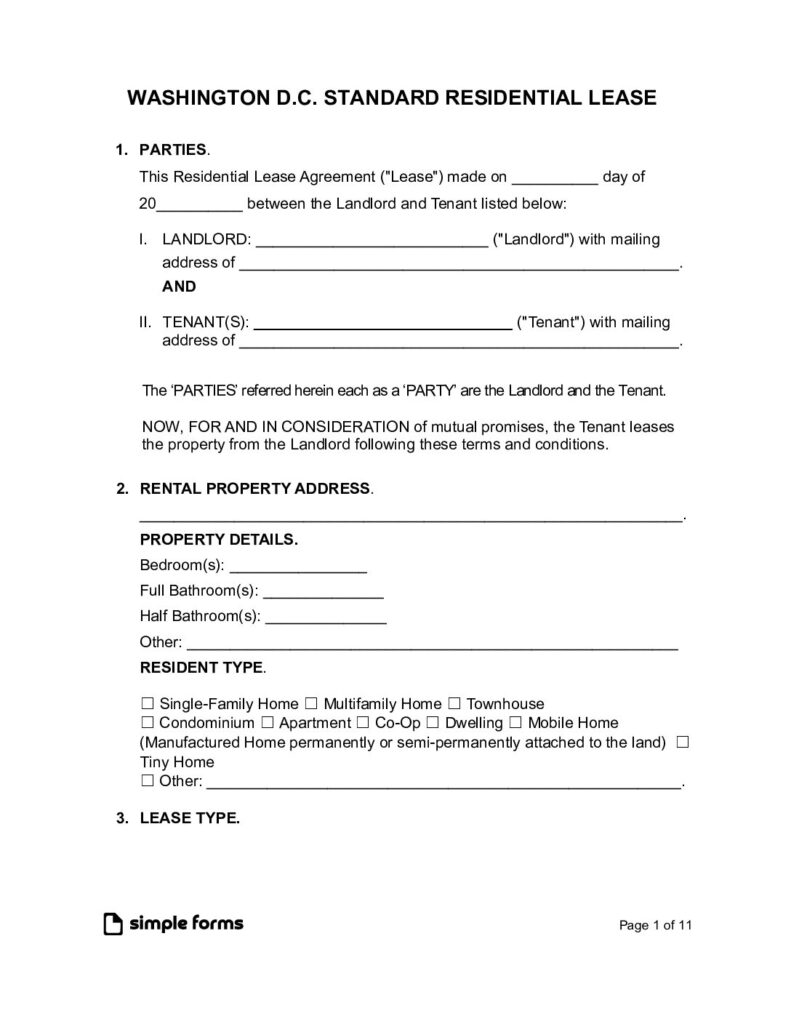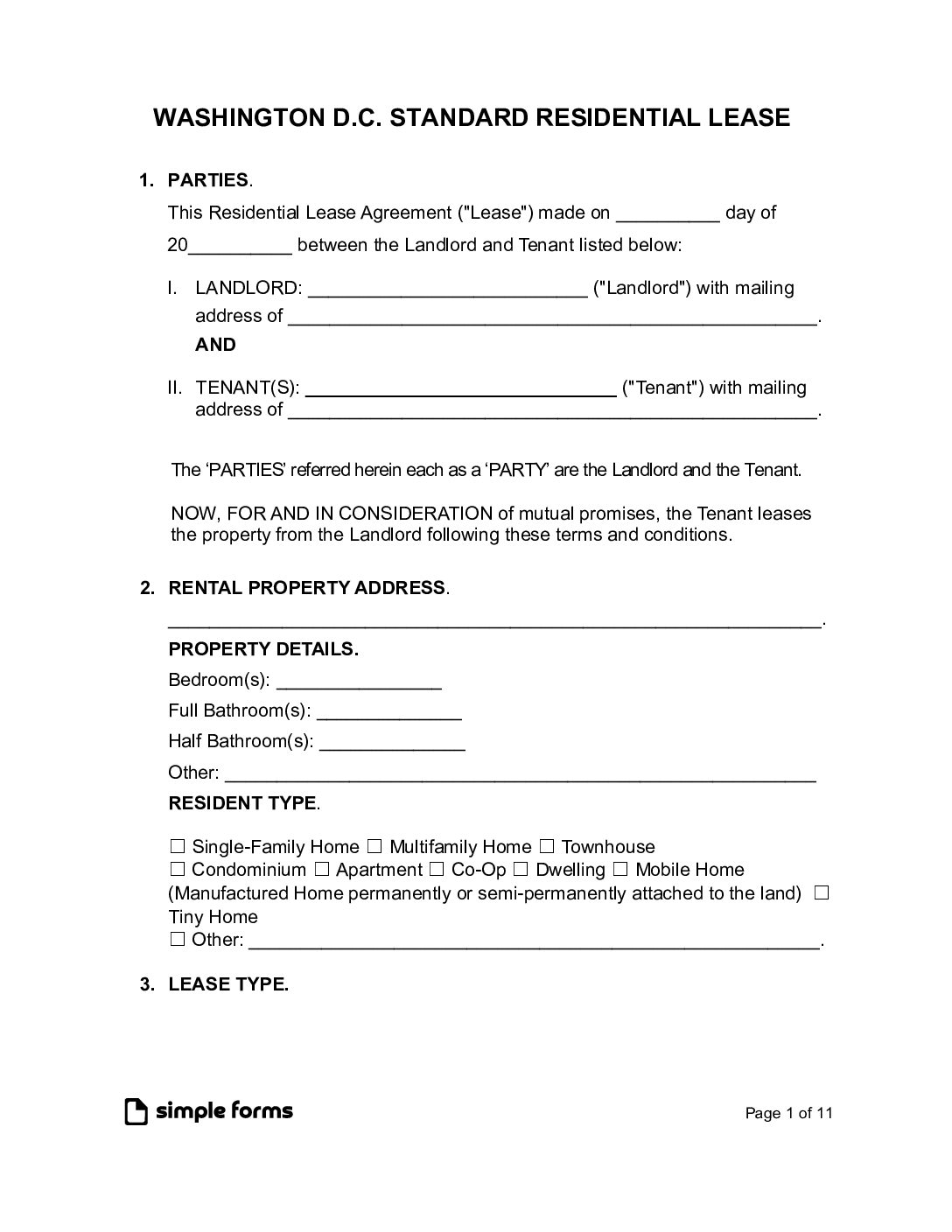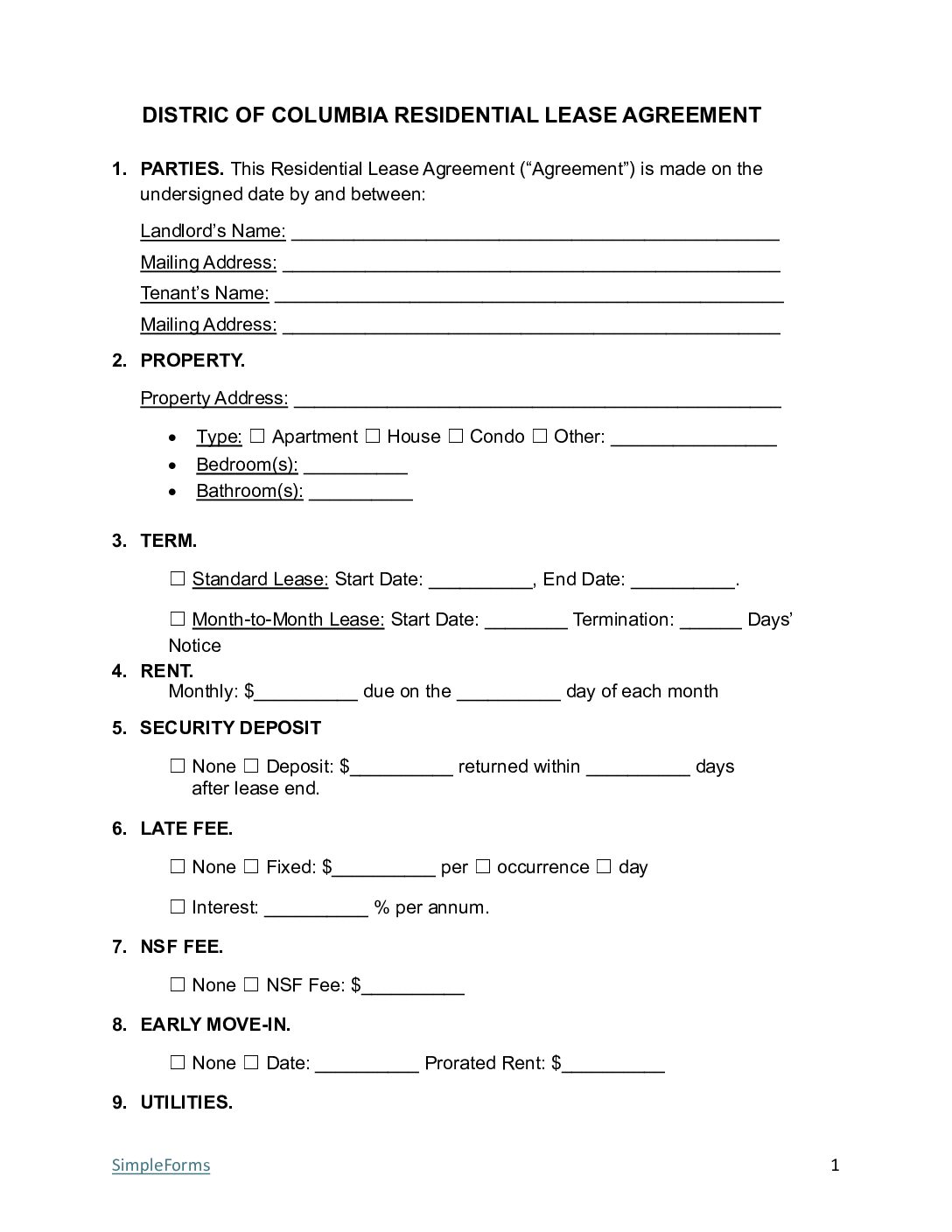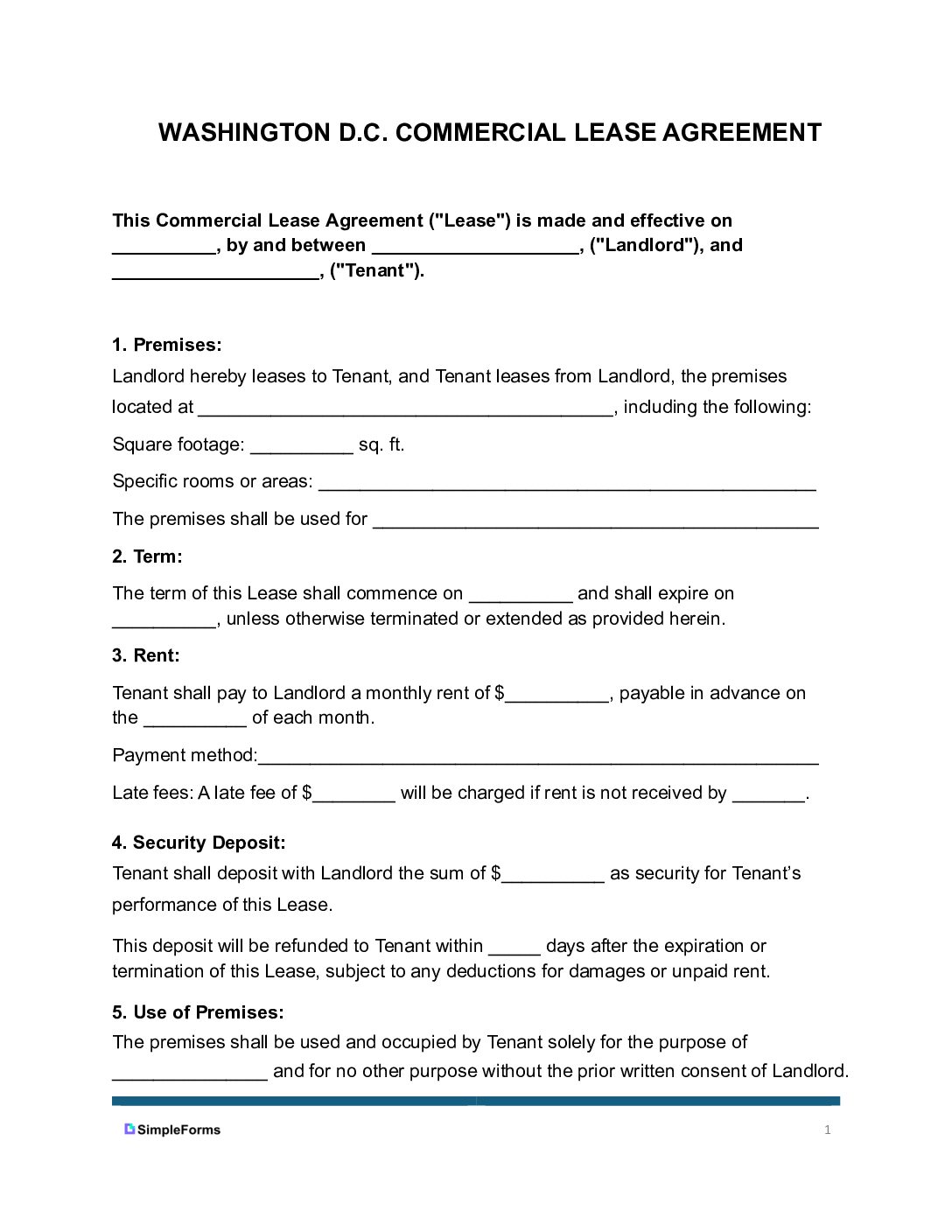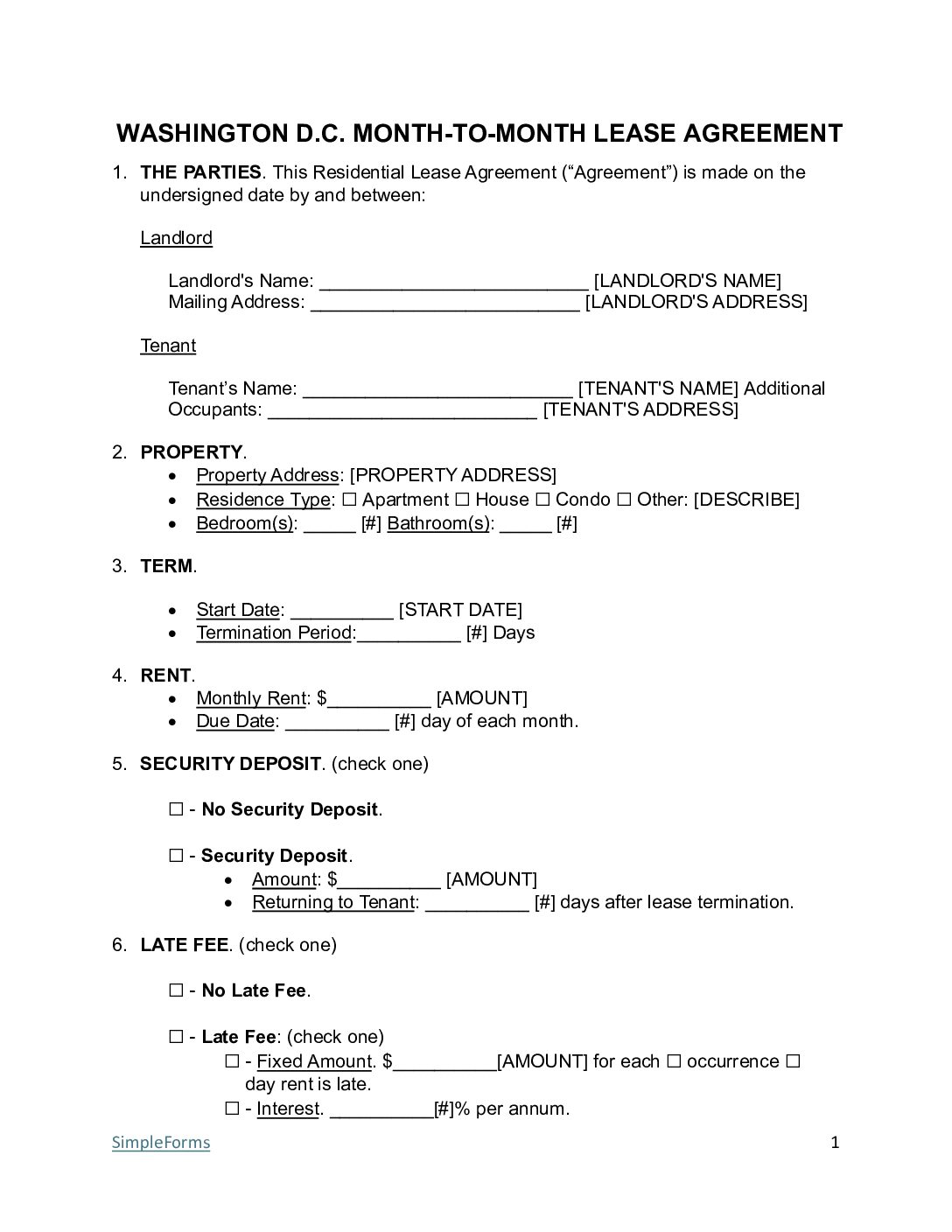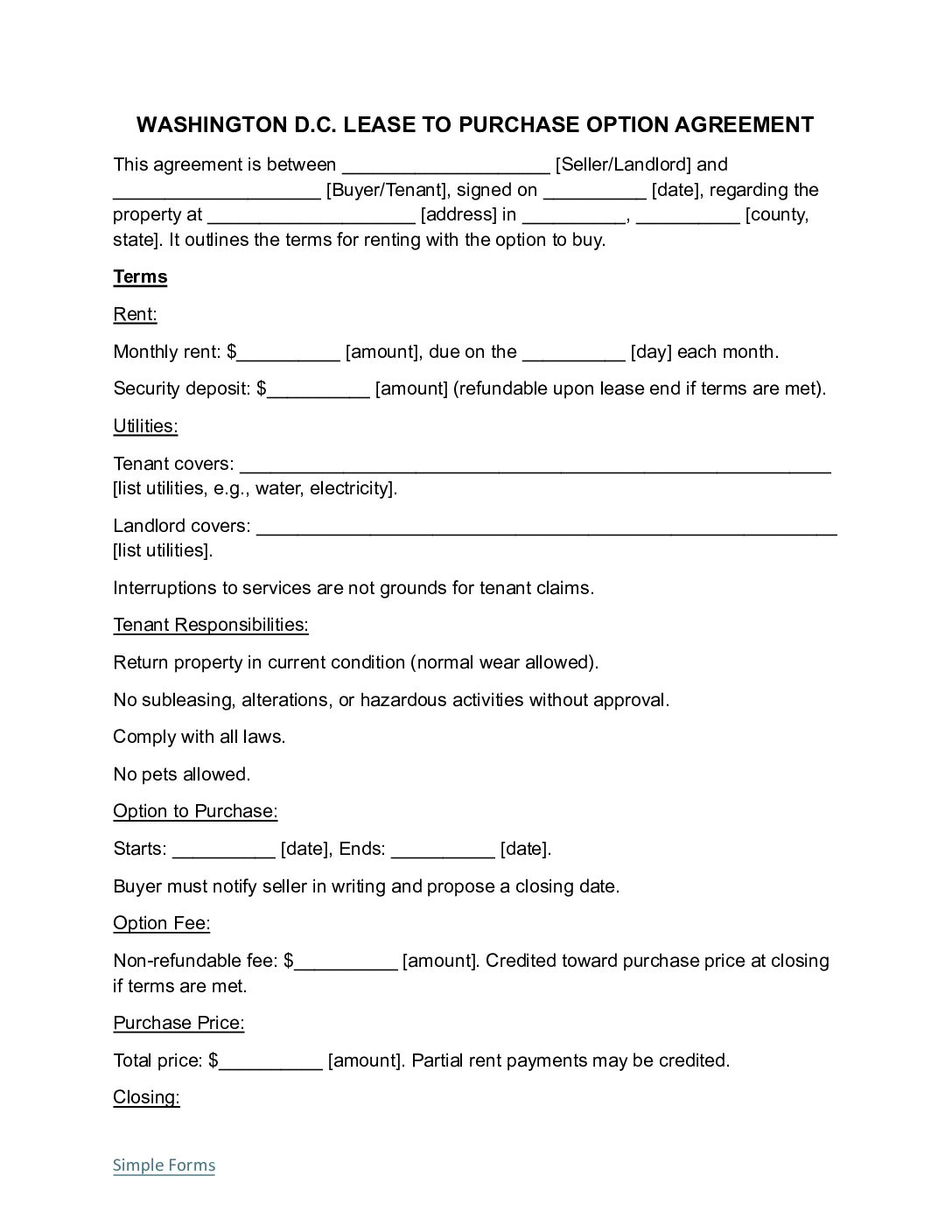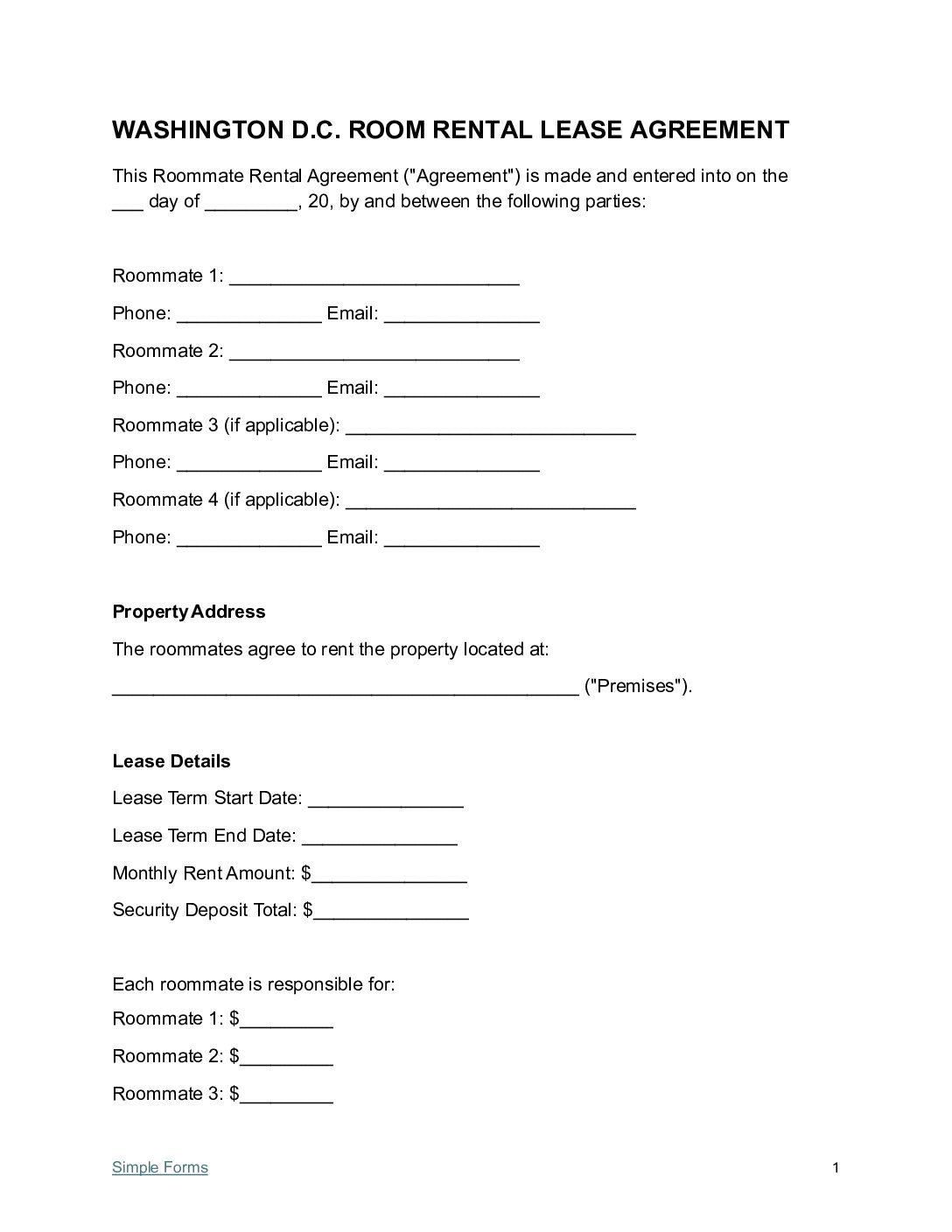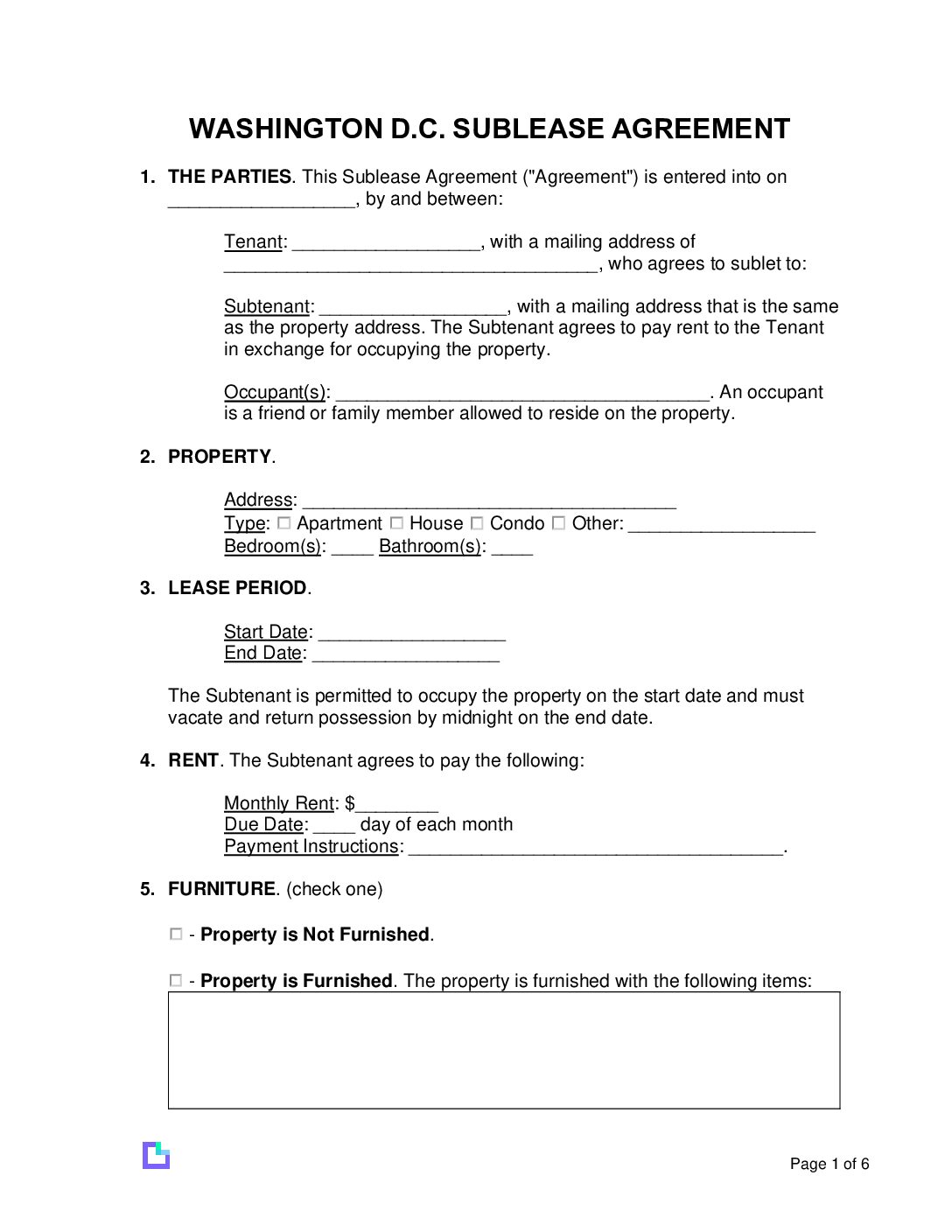By Type (6)
| Residential Lease Agreement – Standard 1-year lease term. Download: PDF | Word (.docx) |
|
| Commercial Lease Agreement – Used for retail spaces, office buildings, warehouses, and industrial facilities. Download: PDF |
|
| Month-to-Month Lease Agreement – Tenancy at will with renewals every 30 days. Download: PDF | Word (.docx) |
|
| Rent to Own Lease Agreement – A lease that includes an option for the tenant to purchase the property. Download: PDF | Word (.docx) |
|
| Room Rental Lease Agreement Template – Shared living arrangements. A binding contract outlining responsibilities and agreements between co-tenants. Download: PDF | Word (.docx) |
|
| Sublease Agreement – Used to Sublet unit with landlords approval. Download: PDF | Word (.docx) |
What does the District of Columbia Lease Agreement Cover?
This document includes the following laws between the landlord and tenant in Washington D.C.:
- Washington D.C. Residential Landlord & Tenant Act
- Security Deposit Law
- Lease Termination
- Landlord’s Access to the Property
- Rent Due Date plus Late Fees
- Required Disclosure Forms
Washington D.C. Residential Landlord & Tenant Act
The Washington D.C. Residential Landlord and Tenant Act is a guide for landlords and tenants that outlines the legal rights and responsibilities. It covers lease agreements, rent regulations, eviction processes, maintenance responsibilities, and dispute resolutions. [1]
Security Deposit Requirements
Landlords in Washington D.C. can require a security deposit and must return it within 45 days after the tenant vacates, minus any deductions for damages.
- 45 Days – Timeframe to return the deposit. [2]
- Deductions (if any) must be itemized.
- Normal wear and tear cannot be deducted.
Lease Termination Rules for the Landlord and Tenant
Leases in Washington D.C. may be terminated by either party under the following rules:
- Landlord’s Ability to Terminate
- 5-day notice for nonpayment of rent.
- 30-day notice for material noncompliance with the rental agreement.
- Tenant’s Ability to Terminate
- With proper written notice for unsafe conditions or habitability issues.
- 30 days’ notice to terminate a month-to-month lease. [3]
Landlord’s Access to the Rental Property
Rent Due Dates and Late Fees
- Late Fees – Must be written in the agreement.
- Grace Period – 5-day grace period.
- NSF Fee – $40 per bounced rent check. [5]
Required Disclosure Forms
- Lead-Based Paint Disclosure Form – Landlords must disclose lead-based paint if the property was built before 1978. [6]
- District of Columbia Tenant Bill of Rights – This document outlines the rights and responsibilities of the tenants.[7]
- RAD Form 3 – This form is used by landlords in rent-controlled buildings to notify tenants of any adjustments in the rent.[8]
- RAD Form 5 – This form notifies tenants of rent changes due to reduced services or increased costs under the city’s Rental Housing Act of 1985.[9]
- Bed Bug Fact Sheet– This form us used to discloses any bed bug infestations on the rental property. [10]
